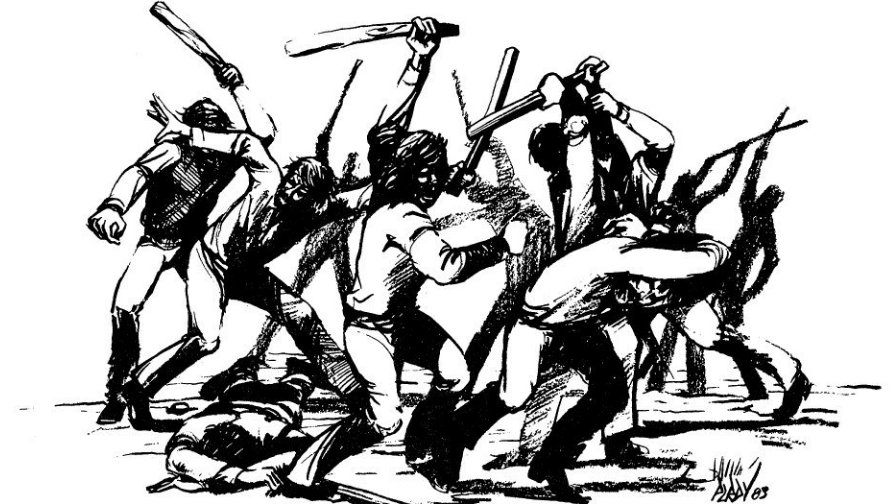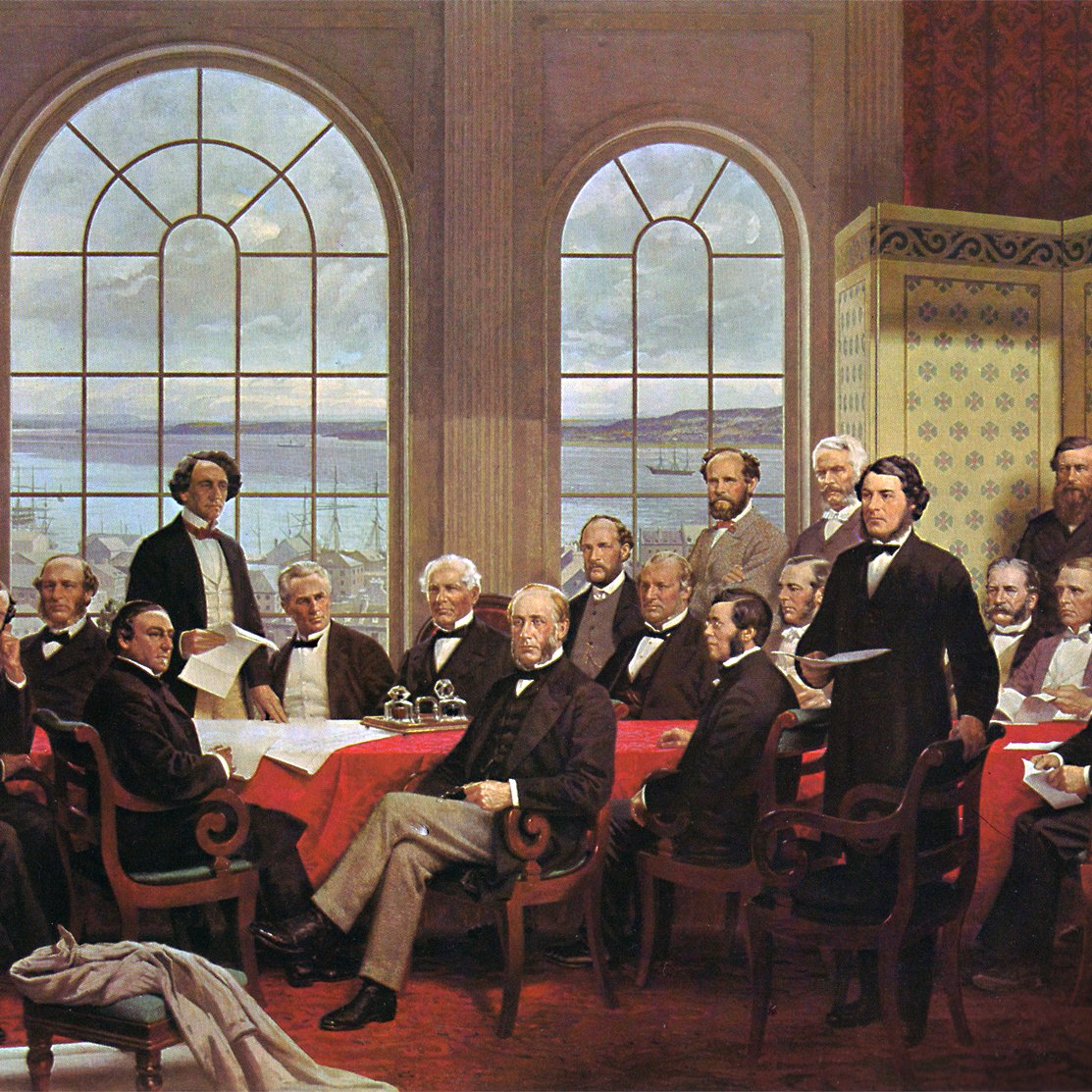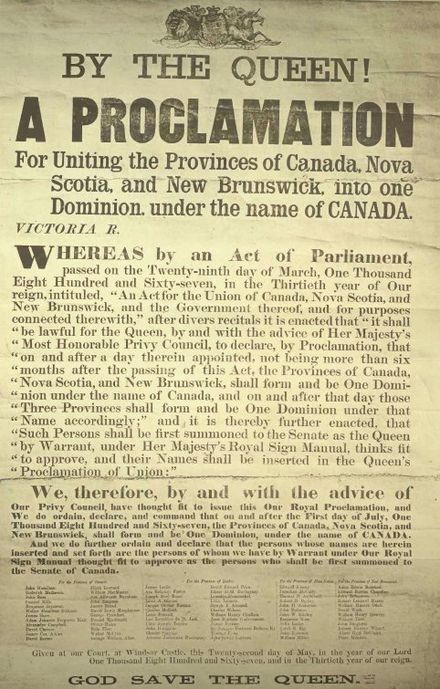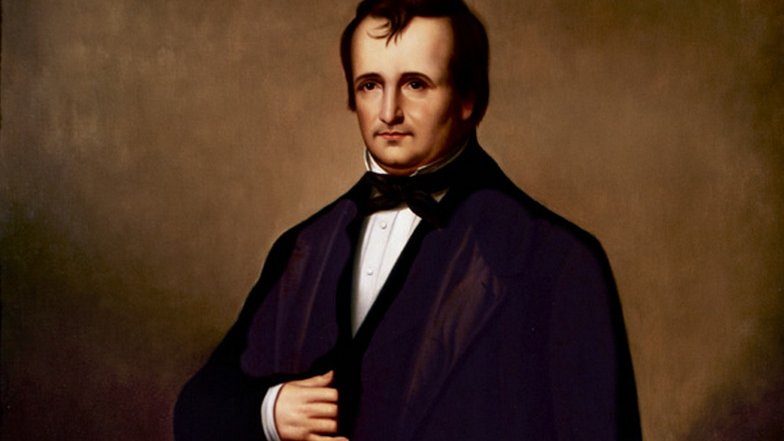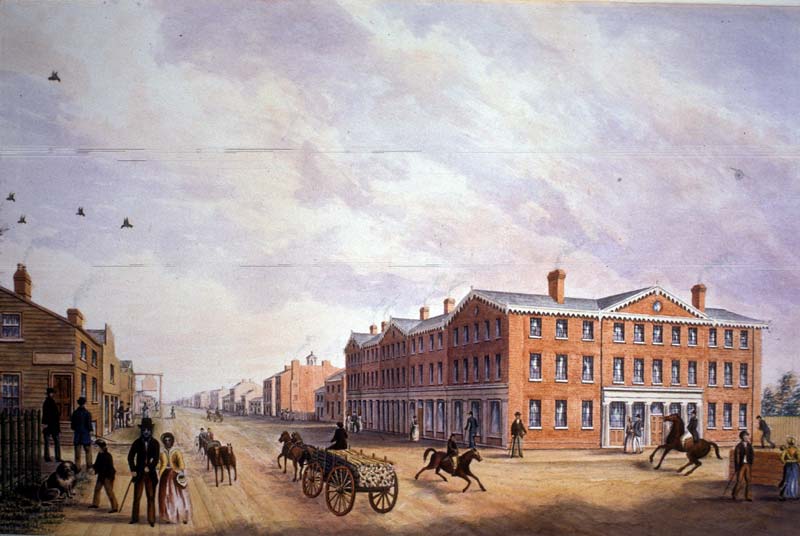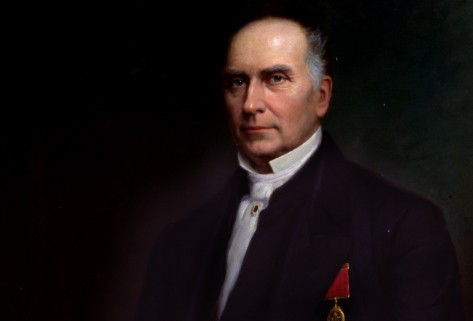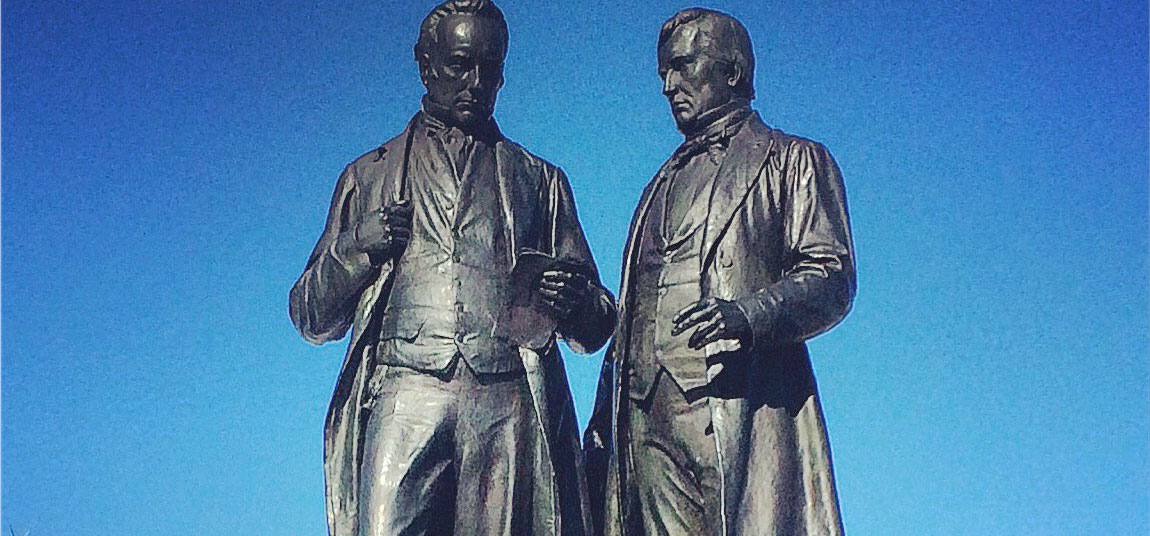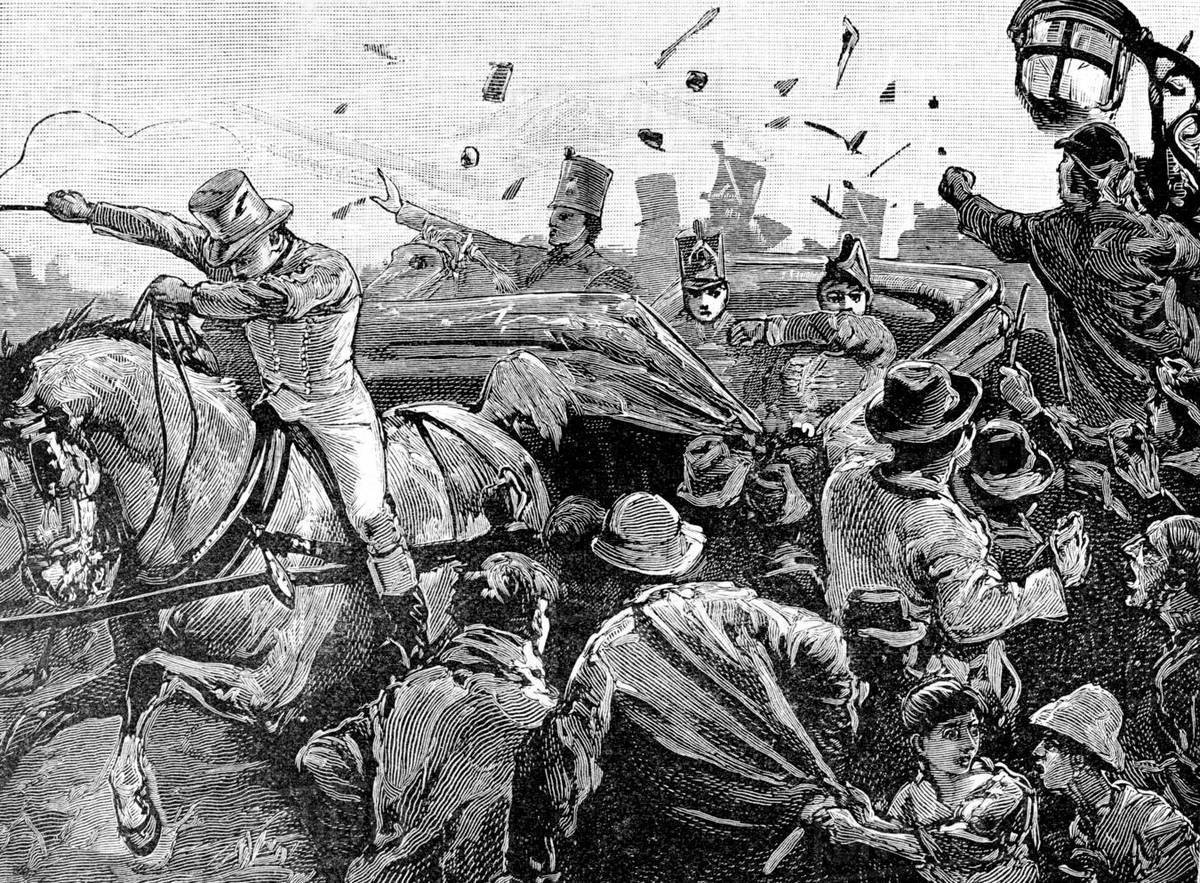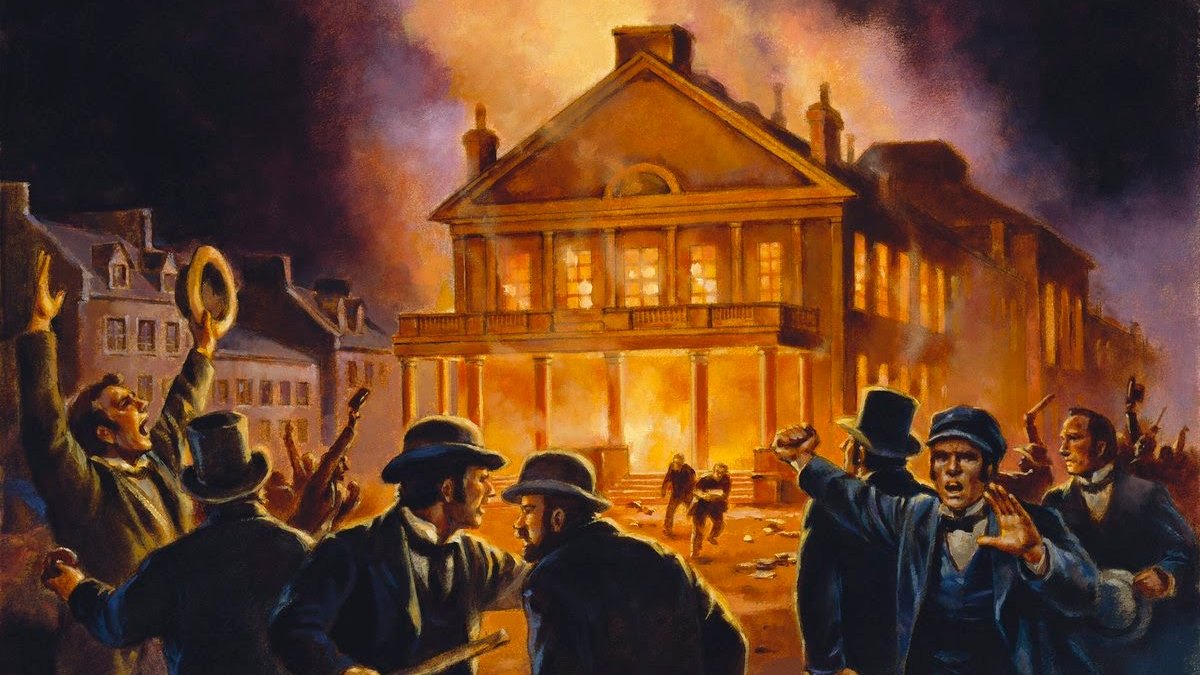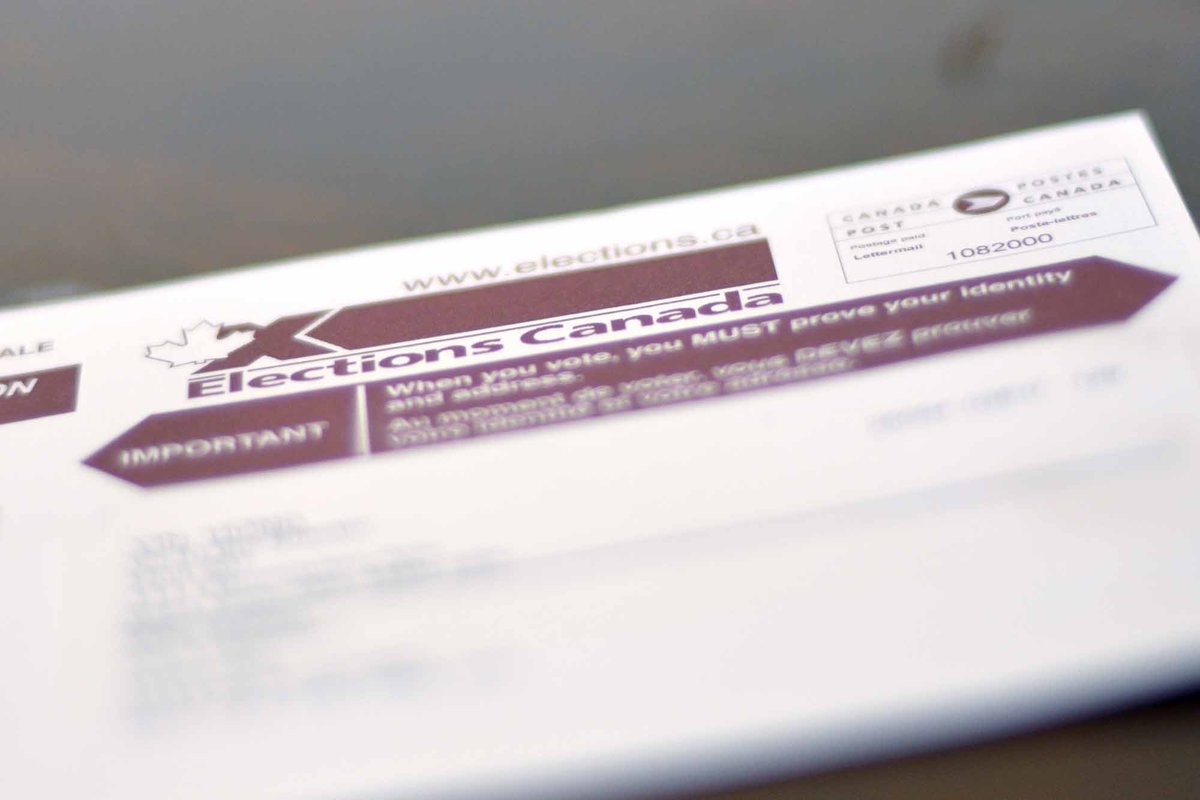1. Canadian elections used to be long and bloody affairs. Armed thugs kept people from voting. Polls could be open for weeks. Sometimes, drunken violence even left corpses in our streets.
2. Take Upper Canada in the 1830s (since I happened to research it recently for my new book):
Many—like women & anyone who wasn't a British subject—weren't allowed to vote. But for those who were, even just getting to the poll was a major challenge. Sometimes, life-threatening.
Many—like women & anyone who wasn't a British subject—weren't allowed to vote. But for those who were, even just getting to the poll was a major challenge. Sometimes, life-threatening.
3. There was only one place to vote in each riding, and the ridings were huge. Settlements were scattered, with few roads linking them together. The roads that did exist were often nearly impassable, just roughly hewn passages through dense forests.
4. Getting the vote out was a physically demanding job. And the stakes were high: getting stuck in the mud or losing a wheel might mean getting stranded. A wagonful of voters could be unable to reach the polling station, and the election could easily slip away.
5. There was also no election day — it was an election *week* or more.
Polls stayed open for at least seven days; they only closed when an hour went by without anyone casting a vote.
Polls stayed open for at least seven days; they only closed when an hour went by without anyone casting a vote.
6. That meant political parties who got the sense they were losing could keep a poll open indefinitely by having a pool of voters at the ready, sending them in one by one, once every hour.
7. Keeping these voters happy until the time came to vote usually involved plenty of alcohol, as well as having a place for them to sleep if they were forced to wait overnight.
8. With all those drunk and passionate voters hanging around, taverns and polling places frequently became scenes of violence.
9. “Those [pubs] were fertile spots for securing plentiful crops of violence & bloodshed,” one writer explained. “Broken-heads & black-eyes were ordinary events. And sometimes men were maimed for life, or were killed outright, at those scenes of strife during an election contest”
10. The scenes repeated themselves across the Canadian colonies. Troops opened fire on a crowd in Montreal, killing three francophones. A Scottish skull was cracked by an Irish mob in P.E.I. There were deadly riots in New Brunswick… and plenty more.
11. In the years before Confederation, 20 people were killed by election violence in Canada. Countless others were injured or kept from casting their vote — including some of the most powerful political figures in Canadian history.
12. Louis-Hippolyte LaFontaine was the leader of the "Parti patriote" — the political party in Lower Canada (Quebec) that supported progressive reform vs. the conservative Tories.
He & his supporters were blocked from voting by an armed mob of anglophone conservatives in 1841.
He & his supporters were blocked from voting by an armed mob of anglophone conservatives in 1841.
13. His anglophone ally, Robert Baldwin, invited him to run in a riding near Toronto instead.
It was a landmark moment, helping to lay the foundation for our multicultural nation: a francophone Catholic reformer from Montreal winning a seat in anglophone Protestant Tory Toronto.
It was a landmark moment, helping to lay the foundation for our multicultural nation: a francophone Catholic reformer from Montreal winning a seat in anglophone Protestant Tory Toronto.
14. They even made a Heritage Minute about it: https://twitter.com/HistoricaCanada/status/872881426152144896?s=20
15. When Baldwin and his supporters were met by similar violence the following year, LaFontaine returned the favour. Baldwin ran in Quebec and won a seat in Rimouski.
16. Together, they would champion the idea of Responsible Government — arguing that government ministers should answer to parliament instead of colonial overlords in England. Basically, they thought Canada should be a real democracy with power over our own affairs.
17. On the day Responsible Governor became a reality — when for the first time, the Governor General signed a bill into law even though he and the Tories disagreed with — there was even more violence.
18. Tory mobs burned down the parliament buildings in Montreal, pelted the Governor General with rocks, even opened fire on LaFontaine's home (where you can still see the bullet holes in the stone facade to this day).
19. But LaFontaine and Baldwin refused to answer violence with violence. They simply waited. Eventually, the riots sputtered out.
Canada really had become a democracy. And in time, the violent political mobs of the past would give way to the peaceful elections we know today.
Canada really had become a democracy. And in time, the violent political mobs of the past would give way to the peaceful elections we know today.
Thanks so much for reading! It let me avoid the news from south of the border for a little while...
And if you're interested, one of the men tasked with getting out the vote back in the bloody 1830s will be getting a chapter in The Toronto Book of Love: https://twitter.com/TODreamsProject/status/1319436973711499265?s=20
And if you're interested, one of the men tasked with getting out the vote back in the bloody 1830s will be getting a chapter in The Toronto Book of Love: https://twitter.com/TODreamsProject/status/1319436973711499265?s=20

 Read on Twitter
Read on Twitter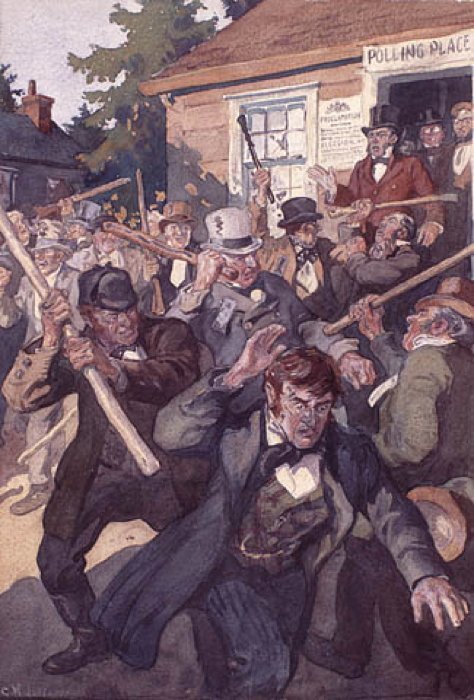
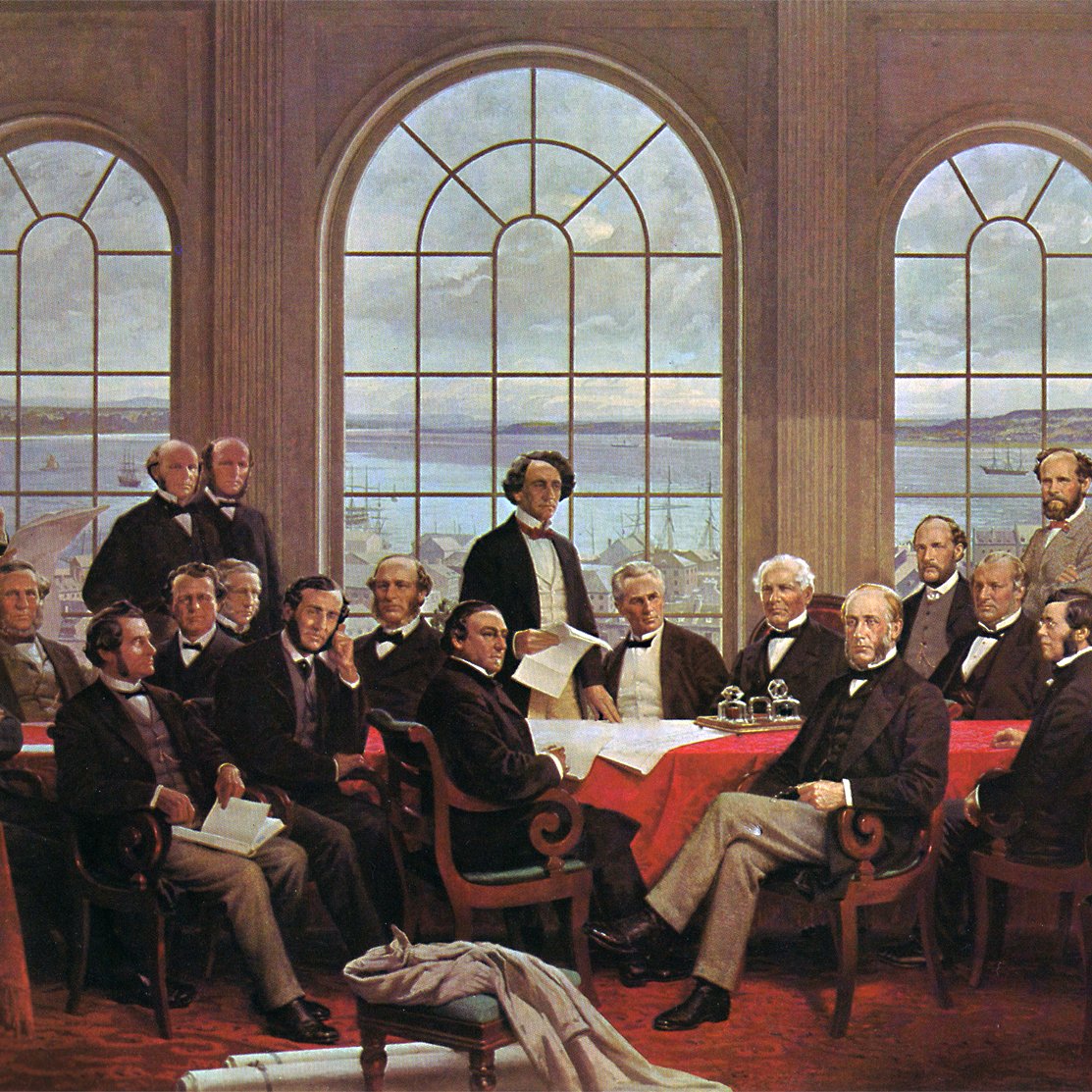
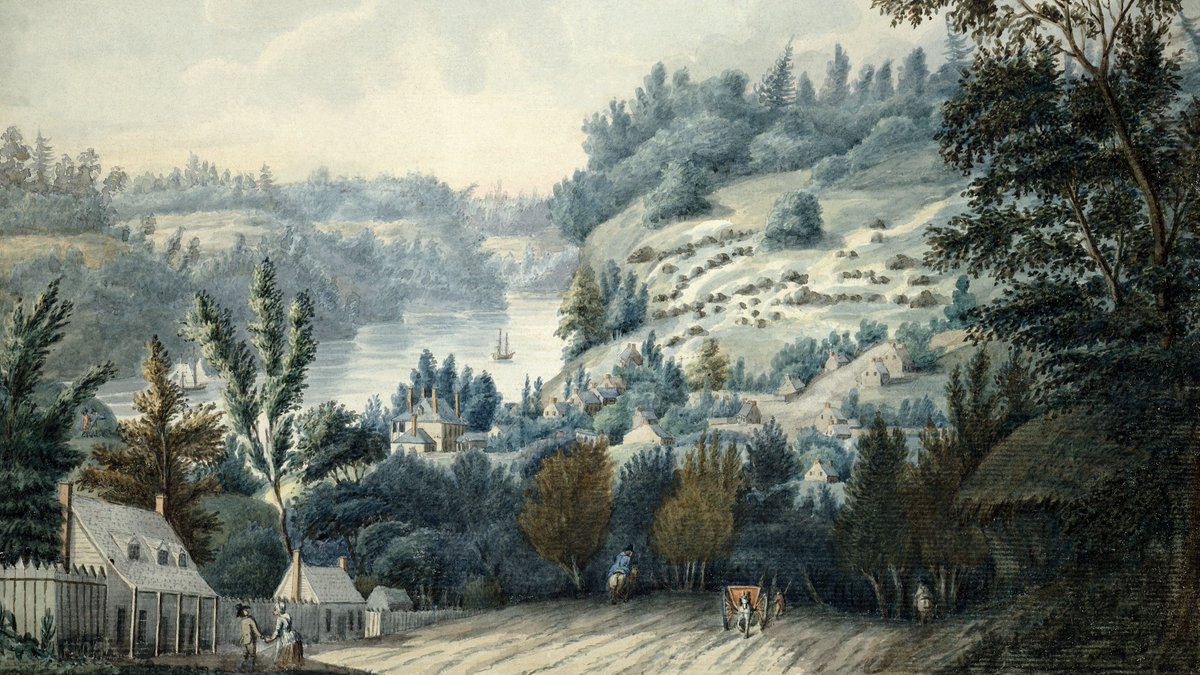
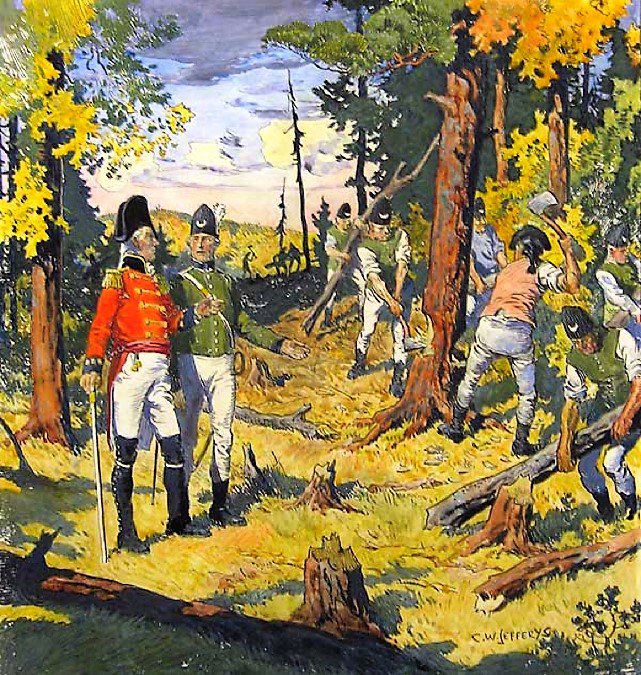
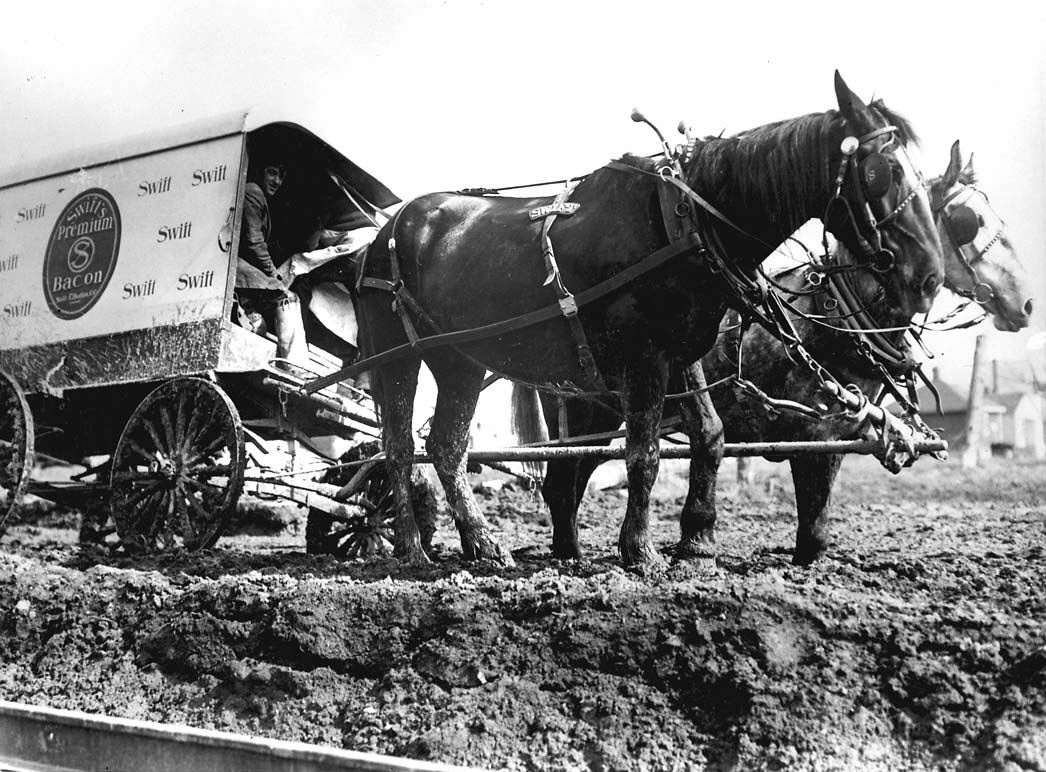
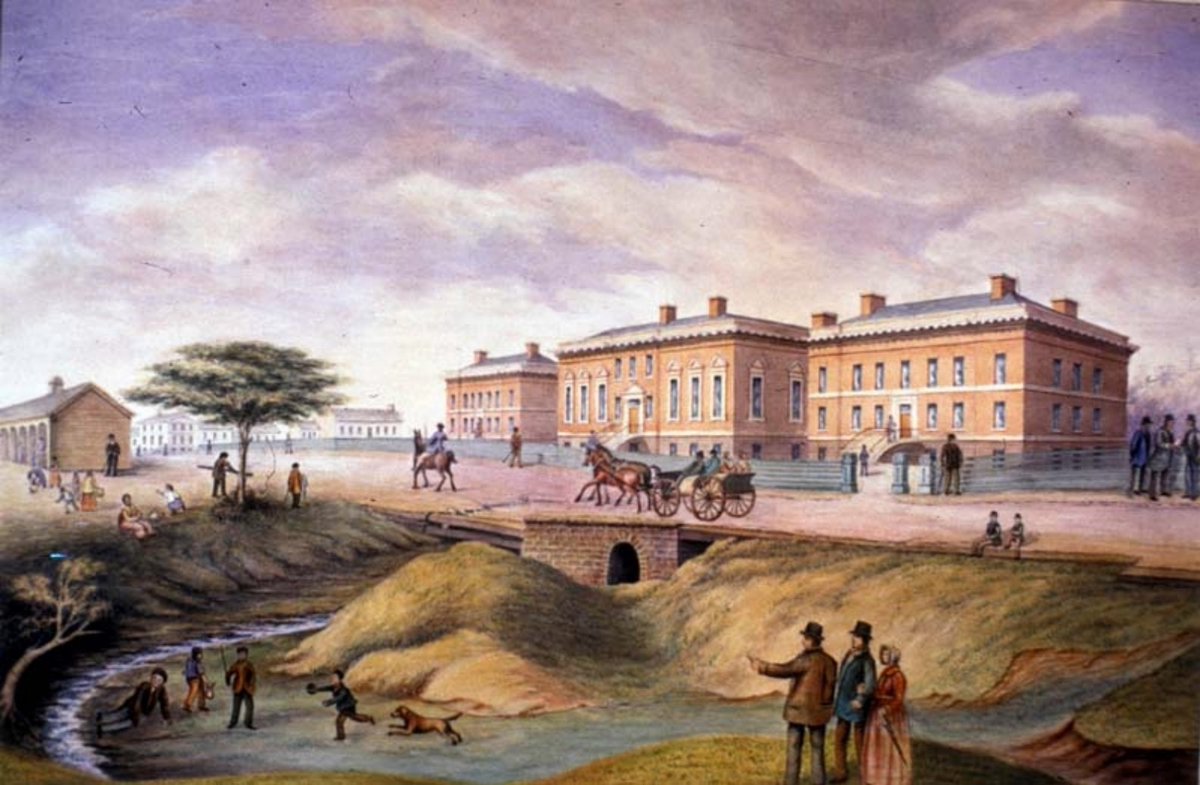
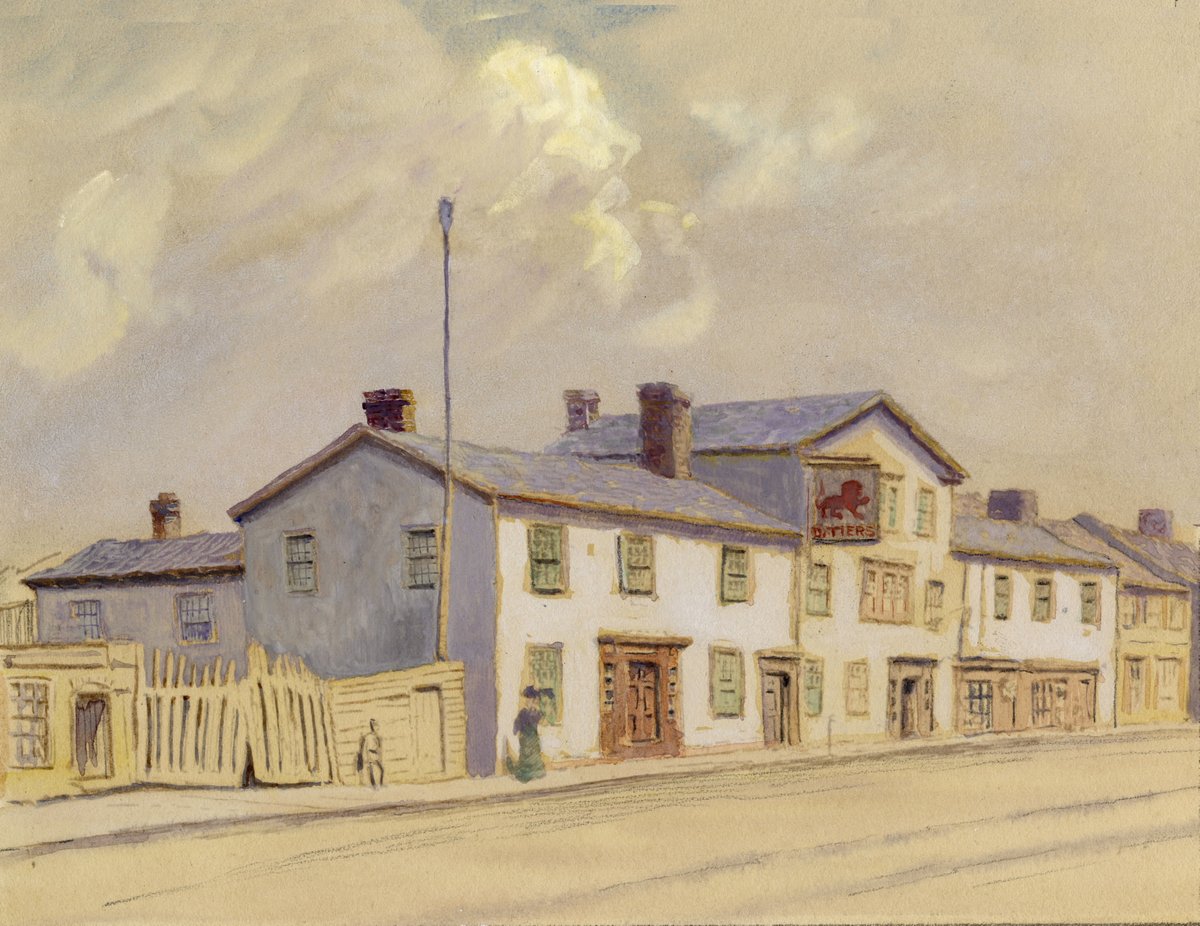
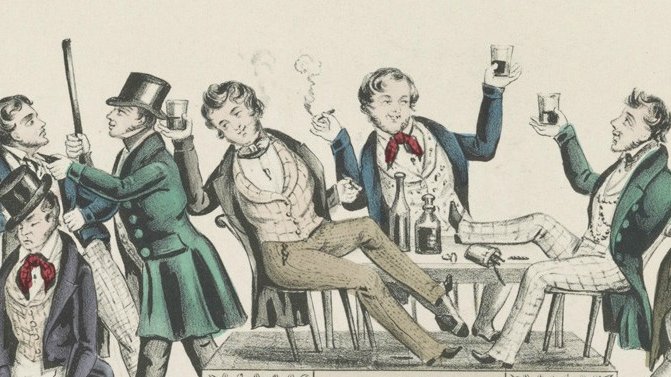
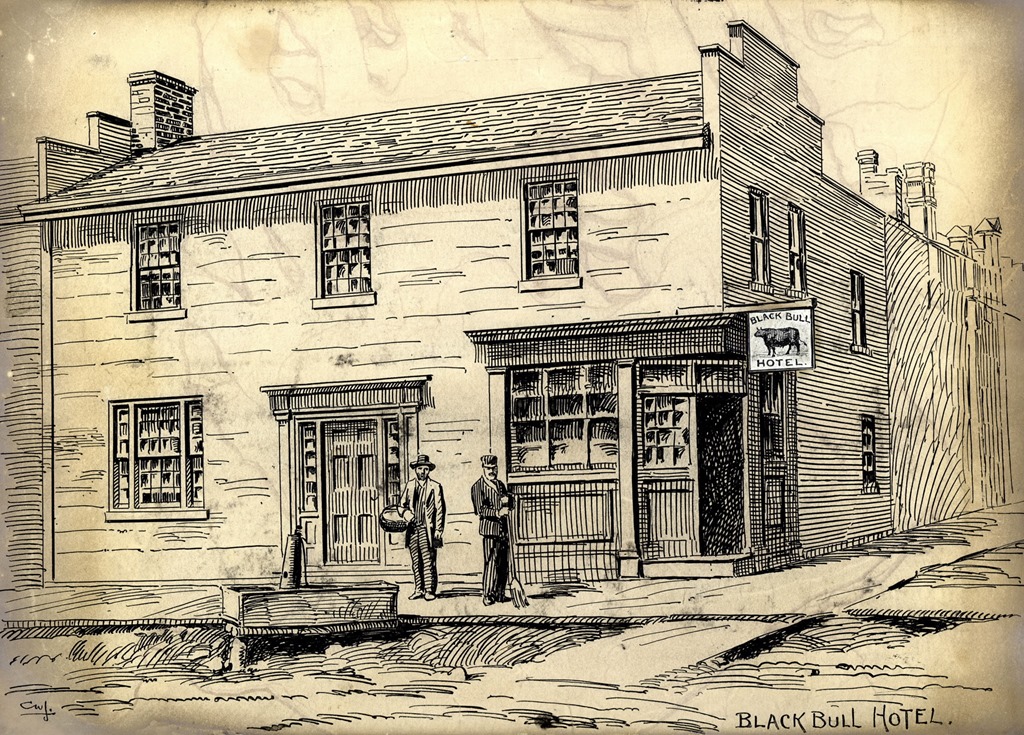
![9. “Those [pubs] were fertile spots for securing plentiful crops of violence & bloodshed,” one writer explained. “Broken-heads & black-eyes were ordinary events. And sometimes men were maimed for life, or were killed outright, at those scenes of strife during an election contest” 9. “Those [pubs] were fertile spots for securing plentiful crops of violence & bloodshed,” one writer explained. “Broken-heads & black-eyes were ordinary events. And sometimes men were maimed for life, or were killed outright, at those scenes of strife during an election contest”](https://pbs.twimg.com/media/El7--XSXIAEugRj.jpg)
![9. “Those [pubs] were fertile spots for securing plentiful crops of violence & bloodshed,” one writer explained. “Broken-heads & black-eyes were ordinary events. And sometimes men were maimed for life, or were killed outright, at those scenes of strife during an election contest” 9. “Those [pubs] were fertile spots for securing plentiful crops of violence & bloodshed,” one writer explained. “Broken-heads & black-eyes were ordinary events. And sometimes men were maimed for life, or were killed outright, at those scenes of strife during an election contest”](https://pbs.twimg.com/media/El7-5laXUAA6t40.jpg)
